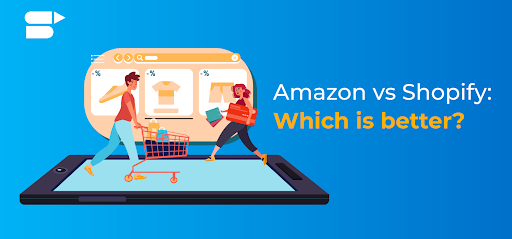The Impact of Alexa plus on Amazon Sellers and Amazon PPC Agencies

The world of ecommerce is constantly evolving, and Amazon remains at the forefront of this transformation. With the introduction of Alexa Plus, powered by generative AI, Amazon is reshaping the way sellers, advertisers, and agencies interact with the audience through Alexa Voice Shopping.
This next-generation voice assistant is not just about voice commands anymore—it’s a hyper-intelligent, personalized business companion. But what does this mean for Amazon sellers and PPC ad agencies?
This article explores how Alexa Plus will impact Amazon sellers and PPC ad agencies, examining its advanced features, pricing model, and strategic implications.
What is Alexa plus & How is it Different from the Previous Alexa?
Alexa is an AI-powered voice assistant that is controlled by voice and performs tasks such as executing hands-free tasks such as smart home management, playing music, and smart automation, including task execution based on user commands (like adjusting smart home devices for lighting and temperature, etc.)
In short, it’s your AI butler that will perform small tasks for you.
It is aware of your vocabulary and language pattern of 9 major languages. Alexa could also match your patterns, take commands to detect keywords and narrate the search results, but it has major limitations.
If you’re familiar with Alexa’s performance, you would have come across certain issues. For example, it may not comprehend your speech or even catch commands when you’re not speaking to it, leaving you in multiple awkward situations. This was particularly prominent while we tried to interact in languages other than English.
Imagine this. It’s Friday night, and you are expecting a guest. The guest arrives. You welcome them and confidently command, “Hey, Alexa. Set the mood,” expecting it to adjust the lights. Instead, it hears “set the food” and starts dictating your grocery list. Embarrassing, right?
This is because the previous Alexa 5th gen was operating on rule-based voice recognition, a technology that runs on predefined rules and linguistic patterns. So whenever you pronounce something that is even slightly different from the language it registered, it cannot comprehend the meaning.

However, to overcome these limitations and enhance contextual accuracy, Amazon has re-engineered Alexa using generative AI, leading to the creation of Alexa Plus. Of course, these days, machine learning models are incorporated everywhere, and engineers from Amazon silently kept the ball rolling at their labs. Some technological abracadabra, and they bring you the new Alexa+.
Alexa Plus is not one but a couple of steps ahead of its time; it’s a leap that Amazon took, taking generative AI as its springboard, which ended up enhancing Alexa’s existing capabilities.
Think of it as Alexa but with a university degree.
Alexa + reads the room (quite literally, using a combination of advanced sensors, contextual AI, and multimodal machine learning) and interacts with promptness. If having Alexa made your life easy, Alexa Plus will make it easier.
Alexa+ additionally integrates natural language understanding (NLU) and predictive AI models to enable a context-aware interaction. New Alexa thinks better, communicates better, understands and even intuitively fills in gaps to effectively execute orders.
Amazon has yet to disclose the pricing for Alexa Plus. However, expect it to be a tiered subscription model where different levels of functionality will have different pricing.
Alexa Plus has already hit the market and is available on Echo devices 8, 10, 15, and 21.

Generative AI is the heart and soul of Alexa+.
It is backed by two major strengths of generative AI models, large language models (LLMs), and deep learning algorithms, Alexa Plus becomes nothing but a personal assistant. Executional tasks are way too basic for Alexa Plus. Previous Alexa may know how to dim the lights when you ask it to, but Alexa+ knows (predicts according to pattern) to what extent to dim the lights.
Let’s break down the capabilities that generative AI brings to Alexa+.
Personalization at its best
Alexa Plus registers user preference and saves it to curate hyper-personalized services. The never-seen-before custom suggestions will blow you away, be it for playlists or shopping. Suggestions that are exactly aligned with your taste.
Conversation flow with new Alexa
Alexa is more human and less robotic, thanks to the influence of Gen AI. Previously what was straight-up questions and answer prompts now is a free-flowing back-and-forth conversation. You can expect it to keep up with conversions, as it has more intelligence to back up its capabilities.
Contextual response
The best part of conversions is going to be the accuracy of the response from Alexa Plus. You will not have to oversimplify your prompts. Do not have to think twice. Ask questions as if you’re asking another human.
Say, you’re confused about whether you should drive to the beach. Do not hesitate to ask Alexa+ straight up. Generative AI in Alexa Plus will take your question, consider your schedule (if it is in its database), integrate with calendars and external APIs like weather/traffic apps, consider the weather and the traffic outside, and tell you whether it is a good idea. No fumbling, smart decision-making.
Creative assistance
So, now that you know how intelligent it can be in small day-to-day decision-making, why not ask for help when it comes to a data-driven creative decision? Let it brainstorm for you.
Want to give your best friend the perfect birthday present? Alexa+ will curate the best according to the data it has of your best friend. Similarly, if you share the highlights of your friendship timelines, it can think along the lines of creativity to write a special poem for their birthday card. Isn’t that crazy? But well, now you can.
No decision fatigue
We suffer from analysis paralysis more than we think. Now let Alexa Plus do the selection. Simply connect your smart devices in your kitchen, and based on what’s there in the fridge, it will suggest recipes that you can execute, and voila! Perfect dinner recipe at one ask.
If there is a marathon coming up, you can expect Alexa+ to suggest a healthy recipe. Yes, it is hyper-aware of its environment as well. It stays active in the background and takes note of your daily activities, speech, text, etc. Its decisions rely on historical data, your health preferences, and the availability of ingredients synced through connected apps.
For example, if you’ve been logging high-protein meals and tracking morning runs, Alexa Plus might recommend a protein-packed smoothie using what’s already in your fridge. It’s not just responding — it’s anticipating. From grocery lists and fitness plans to ambient temperature adjustments for optimal sleep, Alexa Plus blends context, personalization, and proactive support into everyday routines.
This brings us to,
Multi-device incorporation
Gen AI transforms the previously existing Alexa framework to form a command hub for all your smart devices to form an ecosystem. When you can seamlessly link multiple devices, you can coordinate every appliance through minimal command. Let us explain. (Ready to get your mind blown?)
If you constantly get anxious about whether you’ve locked the door or turned off the stove, Alexa Plus can bring you peace of mind. How?
Instead of commanding Alexa to switch off the lights, turn off the AC, lock the door, and turn the TV off, say, “Bye Alexa, I’m leaving for the gym,” and the advanced Alexa+ will make sure all of it is taken care of. No panicking between sets worrying about what you forgot to switch off at home. You can always thank them later!
Troubleshooting isn’t a trouble anymore
We can collectively admit that troubleshooting is even more troublesome if the steps are difficult. But the future is here! Following user manuals or boring customer service calls are a thing of the past. You can use Alexa Plus to give voice commands and troubleshoot any issues in smart home devices or explain product features in a simple, effortless and conversational way.
Note: If your device isn’t compatible or doesn’t support Alexa’s advanced integrations, Alexa+ may not be able to provide that detailed, step-by-step help.
How can Alexa Plus impact Amazon sellers?
Gen AI gives Alexa+ an edge when it comes to advanced thinking. For Amazon sellers, this means a whole new world of opportunities and challenges. If you’re an Amazon seller, we recommend adapting to evolving trends and stay ahead of your competitors who don’t. Let’s see how Alexa Plus can impact sellers.
Voice shopping at its best
Alexa+ offers not just convenience but conversation. Sellers need to adapt to a strategy that optimizes their product listings for voice search. This means using keywords that match how people naturally speak, like “Alexa, what’s the best juicer under $100?”.
Personalized recommendations
Alexa Plus uses Gen AI to provide personalized product recommendations based on gathered data from the background, user preferences, and past purchases.
If your product aligns with what Alexa+ recommends, you could see a significant boost in sales. Since Alexa Plus processes user intent more fluidly than before, product discovery relies on how natural and conversational your listings sound, not just keywords. Thus you need to ensure your product listings are rather long tail keyword optimized to be contextual enough to appear in these recommendations.
Upselling or cross selling opportunities
Alexa+ can process complex transactions, including bundling, or added services giving sellers the opportunity to upsell or cross sell. This means sellers can offer more comprehensive solutions at once to customers who are looking for a well rounded shopping experience. For example, suppose a customer orders a new smart lamp. In that case, Alexa Plus will recommend installation services or accessories such as chord extensions or lamp stands, which will increase the average order value, generate more sales and keep the customers happy.
Third-party integrations
Alexa+ integrates with various services, expanding the reach of sellers beyond Amazon. For instance, integrating with food delivery services like Doordash, Grubhub or Whole Foods can help sellers offer a broader range of products and services, enhancing customer convenience.
Let us explain. Alexa Plus isn’t limited to Amazon’s own shopping ecosystem. Through the Alexa Skills Kit (a toolkit developers use to build voice-powered features for Alexa), third-party brands and services—like Domino’s, Uber, or even independent ecommerce sites—can create custom Alexa “skills” that integrate with their platforms.
With Alexa+ and its improved natural language understanding, users could command “Alexa, book me a ride to the airport” and Alexa Plus would complete the transaction, pulling from the third-party’s system via these custom integrations.
Alexa Plus’s impact on Amazon PPC ad agencies and adaptation to new optimizing strategies
Closely judging the features of Alexa Plus, here are a few ways PPC ad agencies can improve their strategies to match the voice search requirements:
Contextual keywords for a better match
The USP of Alexa+ is all about voice shopping and personalized recommendations. So clearly, it’s time for PPC ad agencies to change their strategies to suit the requirements of Alexa Plus voice shopping. Additionally, because of the active semantic model incorporated by Alexa+, it is capable of understanding users’ context. Previously the focus was on interaction and intent-based keywords, whereas now, sellers will have to match and optimize for keywords that mimic human speech patterns.
Let us explain.
Previously, users had to oversimplify their prompts to make Alexa understand what they needed. Now, they can be as broad as “What shoes do I need for a good cardio session?” and Alexa Plus will list all the running shoes that are best fitted for protecting your feet during cardio sessions. It means agencies need to get really good at predicting and using long-tail, conversational keywords.
Here is where an Amazon PPC agency comes into play. A forward-facing amazon PPC agency such as SellerApp will know exactly how to do the job and make your Amazon products Alexa Plus optimized.
Optimization for Artificial Semantic Intelligence to result in better customization
To optimize products to rank for Alexa+, Amazon PPC Ad agencies will have to analyze voice searches and create super-targeted campaigns. Thus we understand the focus may shift to natural language based keyword strategy. Alexa Plus observes and records your behavior and patterns to use Predictive ASI (Artificial Semantic Intelligence) to personalize recommendations based on a user’s history and preferences.
For PPC agencies, this is a double-edged sword. On one hand, they have the power to create ads so personalized that they feel like a perfect fit. But on the other hand, there’s a fine line between smart targeting and being too intrusive which may seem like breaching privacy lines. Agencies need to be really careful about how they use customer data. They’ll need to stay up-to-date with data protection regulations and make sure their targeting strategies are both effective and ethical.
Multi-step transactions to enable better sales
Alexa Plus can handle complex, multi-step transactions. This means agencies need to think beyond single product ads. They will be required to create campaigns for bundled products or services for the best sales output. For example, if someone’s buying a bookshelf, a PPC agency must make sure Alexa+ recommends the seller’s installation service as well.
New goals for PPC agencies
Another major change is the rise of audio ads as announced by Amazon. With Alexa+ devices in different setups, there’s a whole new world that PPC agencies need to navigate through. They need to switch up their strategies with how they can reach customers through voice prompt responses.
While traditional sponsored product ads might not be effective for voice shopping results, Alexa Plus is more prone to recommending Amazon’s Choice products or bestsellers. This means PPC agencies need to work extra hard on improving their clients’ organic rankings. Now the sellers will pursue winning the Amazon’s Choice badge over sponsored ads.
In a nutshell, Alexa+ is pushing Amazon PPC ad agencies to evolve. The agencies that can adapt quickly – embracing voice search, audio ads, and AI-driven personalization – are the ones that will thrive.
They may need to explore Amazon DSP or other ad-serving tools tailored for voice. Traditional keyword-based Sponsored Ads may not fully capture the nuances of voice search behavior or allow for dynamic, real-time personalization. With Alexa Plus, the ad experience becomes more contextual, predictive, and multi-modal — meaning ads must seamlessly blend into conversations, routines, and user preferences.
Moreover, Amazon DSP allows agencies to leverage first-party data from Amazon’s ecosystem, something seasoned agencies are capable of accessing.
Final Thoughts
Alexa Plus isn’t just another update. It shifts the way the audience interacts with the technology, and more than that, it brings new opportunities to PPC ad agencies to use voice search and improve discoverability. Voice search is evolving. It is now beyond simple commands. It comes with a human-like persona that seamlessly fits itself into modern customer needs.
For sellers, optimizing for seamless conversational, long-tail intentional keywords is the way to get being available for Alexa+. For PPC agencies, ad strategies will reach new possibilities, using predictive AI as its driving force and voice-driven shopping behaviors as its fuel.
Read more:
How Voice Search Will Affect eCommerce SEO
Amazon Audio Ads: Transform your Advertising From Boring to Engaging
Top 6 Amazon Advertising Strategies for Sellers Amid COVID-19
How To Get The Amazon Best Seller Badge – Seller Tip
Boost Ecommerce Sales with ChatGPT Using 20+ Dynamic Prompts










